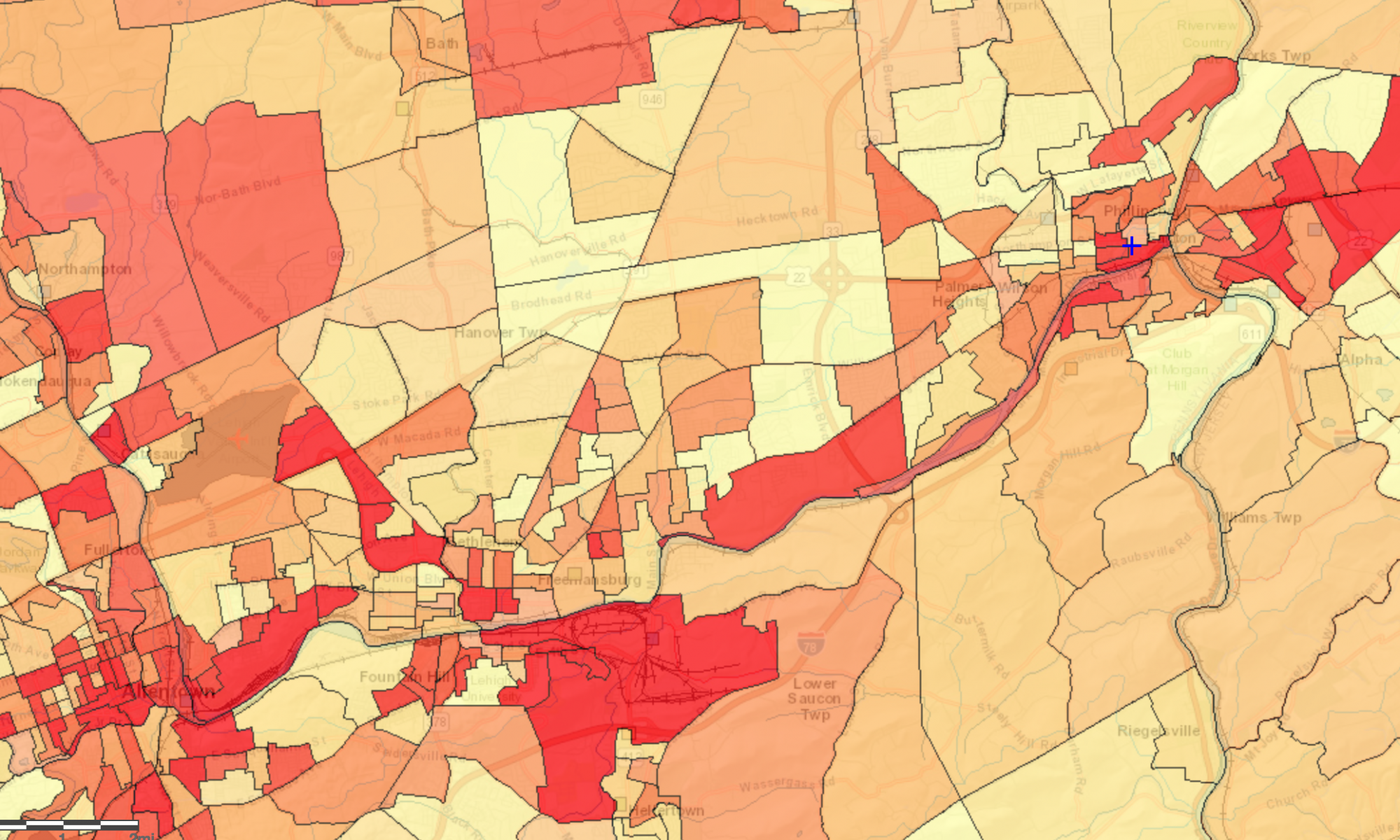
Rachel Carr is the director of the Nurture Nature Center (NNC) in Easton, PA. She received her Master’s in Environmental Policy Design from Lehigh University. Carr has significant experience working in non-profit organizations and has also served on the Easton Environmental Advisory Council. For the past few years, she has had an integral presence in the Easton community.
LEJI: Could you explain your role at the Nurture Nature Center and any other environmental organizations you personally work with in the Lehigh Valley area?
Professor Carr: I am executive director of Nurture Nature Center, responsible for overseeing staff, facility, and all programming and research initiatives. I was fortunate to be able to help found Nurture Nature Center in 2007 after repetitive flooding in the Delaware River Basin in 2004, 2005, and 2006. I am a board member for the Karl Stirner Arts Trail’s board of governance, and a member of the leadership team for the Easton Hunger Coalition and also the Easton Heart and Soul Team, a new initiative through the City of Easton to engage residents in developing a resident-driven plan for Easton’s West Ward neighborhood. I am also a member of a number of advisory boards and committees for federal agencies, including NOAA, National Weather Service, and FEMA.
LEJI: What is the mission of the Nurture Nature Center, and does it work to address environmental justice initiatives?
Professor Carr: Nurture Nature Center is a science-based community in Easton that uses science, art and dialogue programming to get the community learning and thinking critically about local environmental issues. We have a special focus on flooding issues and work with federal, state and local agencies on issues related to risk communication and flood education and outreach. Locally, our center conducts ongoing community programming about a wide range of environmental issues, and our center features art and science exhibits that help to engage and inform the community about local and global environmental topics. Environmental justice issues emerge in many of the issues we discuss, including flooding, which disproportionately affects people with lower incomes, as well as food access, which is a major issue we address through our Buy Fresh Buy Local of the Greater Lehigh Valley program.
LEJI: What is the biggest issue with the PennEast pipeline, in your opinion?
Professor Carr: In a word, land. The pipeline route runs through historic and environmentally important lands, and [its] installation will disrupt habitats through fragmentation as well as degradation, will threaten water quality, and critically poses major human and environmental safety risks inherent with pipelines (namely, leaks and explosions).
LEJI: Do you think that energy transportation or extraction proposals like PennEast may impact the local economic environment, either positively or negatively?
Professor Carr: The pipeline’s construction will bring a temporary infusion of construction jobs, and some residual maintenance jobs after construction, but engenders no meaningful economic activity. A purported benefit of the pipeline will be ample and less expensive energy source for local residents, which could conceivably make an economic impact on local residents, but it is not at all clear that there is any mechanism in place to ensure that energy extracted from area lands will serve local communities.
LEJI: What part is the Nurture Nature Center trying to play in the process of the PennEast proposal?
Professor Carr: Nurture Nature Center’s role in the community is to bring high-quality information on issues such as the PennEast pipeline. Nurture Nature Center hosted a very well-attended panel discussion on the Science of Pipelines, designed to relay information about the effects of pipeline construction on the environment. Nurture Nature Center does not advocate for specific policy positions but helps the community access important science and related information so residents and community leaders can make informed decisions and actions.
LEJI: What part is the city of Easton trying to play in the process of the PennEast proposal? What is the current stance on the proposal in the Lehigh Valley area?
Professor Carr: The City of Easton is not directly on the route of the pipeline, and as such has not taken a position, so far as I understand. Other municipalities, including Lower Saucon Township, have created resolutions in opposition to the pipeline’s construction. There is a strongly organized opposition to the pipeline through various advocacy organizations.
LEJI: What roles do and can forums play in alleviating issues caused by energy projects like PennEast?
Professor Carr: Forums are at the heart of Nurture Nature Center’s community dialogue process. Nurture Nature Center’s model of community dialogue, called “Risk to Resiliency” is a structured process to help guide community members and leaders through a process of education and deliberation on topics of environmental urgency. The model is driven by a “bottom-up” philosophy that aims to equalize participation by community members, leaders, and experts, in recognition of the importance of the perspectives and knowledge of each of those sectors of the community. The model draws on principles from deliberative democracy, public engagement with science, and public hazards research. Forums can structure a civic discussion on contentious topics and can focus conversation toward the establishment of community priorities. A well-designed forum can give voice to those traditionally not heard in public deliberations and can provide a much more comprehensive understanding of the full range of impacts, and possible solutions, to environmental issues.
LEJI: What risks or expectations are held by citizens and businesses of the Lehigh Valley?
Professor Carr: The risks from the PennEast pipeline are plenty: immediate risks to land, life, and property are well documented by the advocacy groups. More obscure risks include a slowing of demand for renewable energy by continued gas exploration, at a time when the renewables field (particularly solar and wind) is gaining momentum in the United States. Residents expect that the rights granted to them in the Pennsylvania constitution related to a safe environment will be upheld and honored in all cases and that these rights will be paramount over economic interests. Communities expect that the fertile and beautiful soils of Pennsylvania will be guarded against degradation.
LEJI: If you had full power over the proposal, would you change anything about the PennEast pipeline?
Professor Carr: If I had full control, I would engage our communities in looking at the full range of energy options available and explore in earnest the ability of renewable sources to power our energy needs. I would also ask that we have a serious analysis of the expectation that we can have [an] ever-expanding population at current consumption levels – we need to challenge the idea that our current consumption model must be continually met, and must also look at reduction of energy need as part of the strategy for reducing reliance on fossil fuels that degrade our landscape so dramatically.
